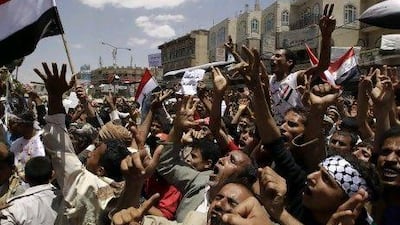KUWAIT CITY // Kuwait Energy, the private oil and gas producer focused on the Middle East and North Africa (Mena), may defer plans for an initial public offering (IPO) of its shares on the London Stock Exchange amid regional political unrest.
The company may also be forced to delay planned oil and gas exploration in Yemen but is forging ahead with projects in Iraq and Egypt.
"We've always said our IPO will be subject to market conditions and we know the market conditions aren't ideal as far as the Middle East region is concerned," said Paul Ditchburn, the vice president of planning and portfolio management at Kuwait Energy.
The purpose of the proposed share offering was mainly to establish Kuwait Energy as a publicly listed company, which was part of its strategy from the outset, Mr Ditchburn said.
Founded in August 2005, Kuwait Energy is expected to seek an unspecified amount of equity financing this year. Its board is likely to discuss the timing of the offering at a meeting next month.
The company's main need for additional capital is to fund its share of two gas developments in Iraq. It is leading a project to develop the Siba gasfield near Basra and is in a consortium to develop the larger Mansuriya field east of Baghdad. Gross capital investment in the two projects is expected to run to billions of dollars.
Kuwait Energy and its partners, the Turkish state-owned petroleum group TPAO and the South Korean gas and electricity company Kogas, hope to submit development plans for the gasfields as soon as the contracts receive final Iraqi government approval.
With market conditions unpropitious for equity offerings, Kuwait Energy may need to increase debt. Currently it has "minimal" debt and a US$58 million (Dh213.03m) loan facility, Mr Ditchburn said.
Gas production from the undeveloped Iraqi fields may still be a few years away. For the moment, about 60 per cent of Kuwait Energy's combined oil and gas output comes from Egypt.
The company's operations in that country have not been affected by the recent political turmoil there, Mr Ditchburn said.
In Yemen, on the other hand, violent unrest may cause Kuwait Energy to pause its oil and gas exploration programme.
It is a partner with DNO International in an oil-producing property in that country. The Norwegian company last month evacuated its expatriate staff from Yemen, opting to manage the project from Dubai.
Kuwait Energy also produces oil in Russia and Oman and gas in Ukraine. But it expects its Middle East assets to account for an increasing proportion of total output.
The company's biggest challenge is likely to be the successful execution of the landmark gas projects in Iraq.
Recruiting qualified staff for the projects could be a headache, as could securing adequate supplies of construction materials and the development of crucial infrastructure including power plants and roads.
The gas developers will have to compete for everything with the consortiums developing major oil projects in Iraq.
The largest of those projects involve the world's biggest international oil companies, including ExxonMobil, Royal Dutch Shell and BP, which have global supply networks.
Nevertheless, Iraq's domestic need for gas development may be at least as important as its immediate requirements for foreign revenues from oil exports, suggesting Baghdad could pull levers to ensure gas developers get the resources they need.
"Definitely, both oil and gas will be developed as equal priorities, along with electricity," said Mr Ditchburn.

